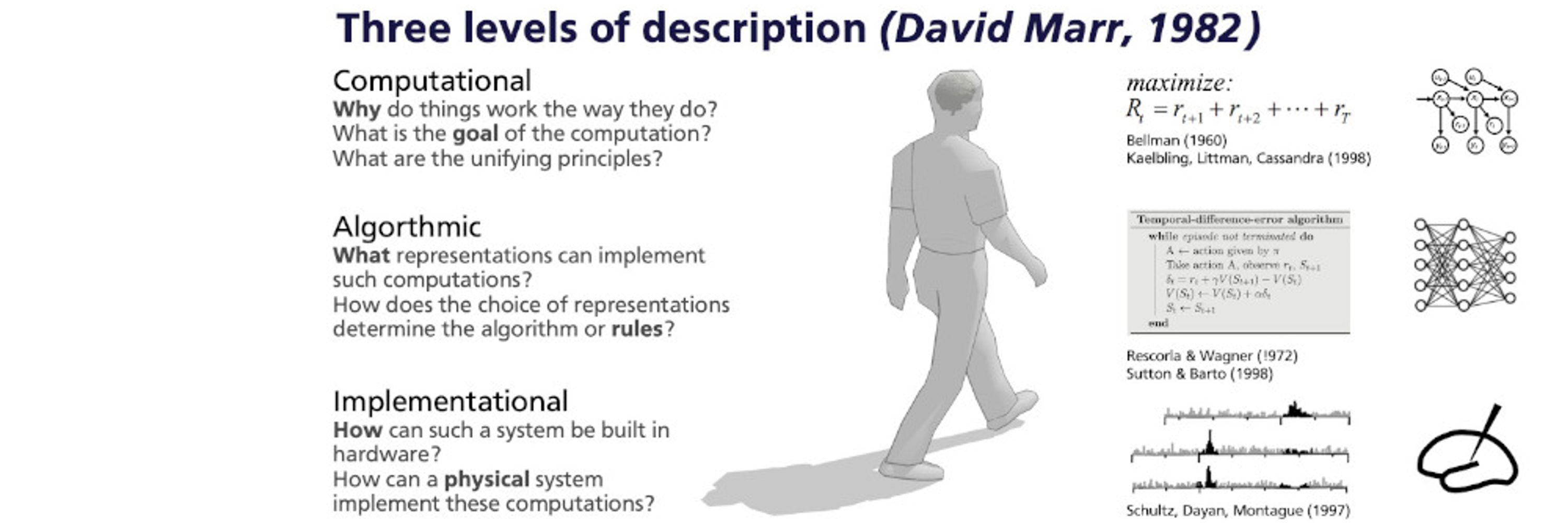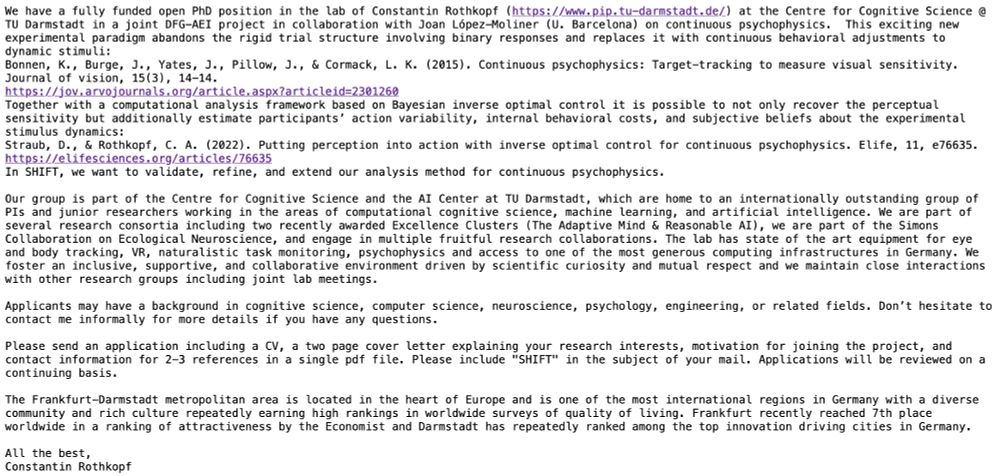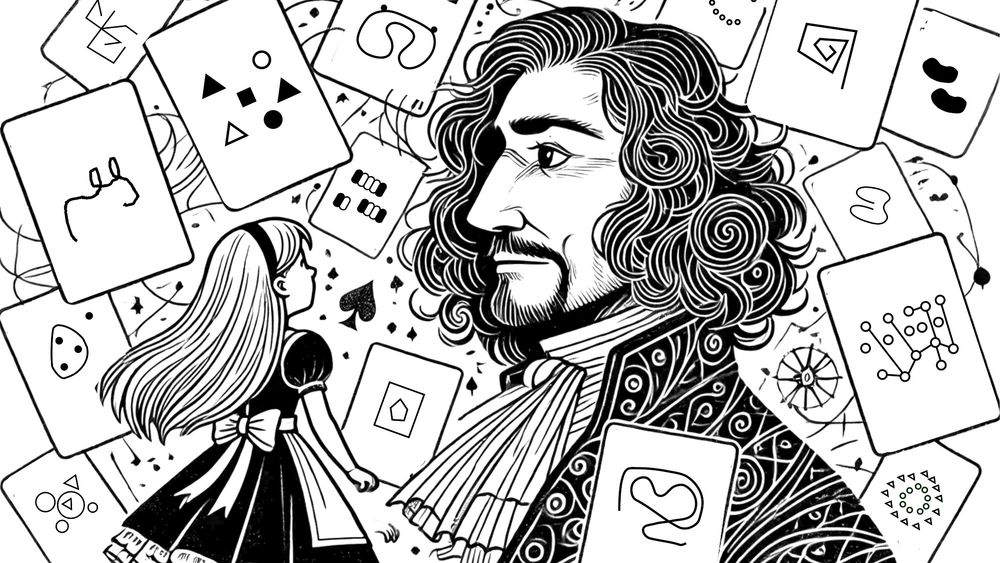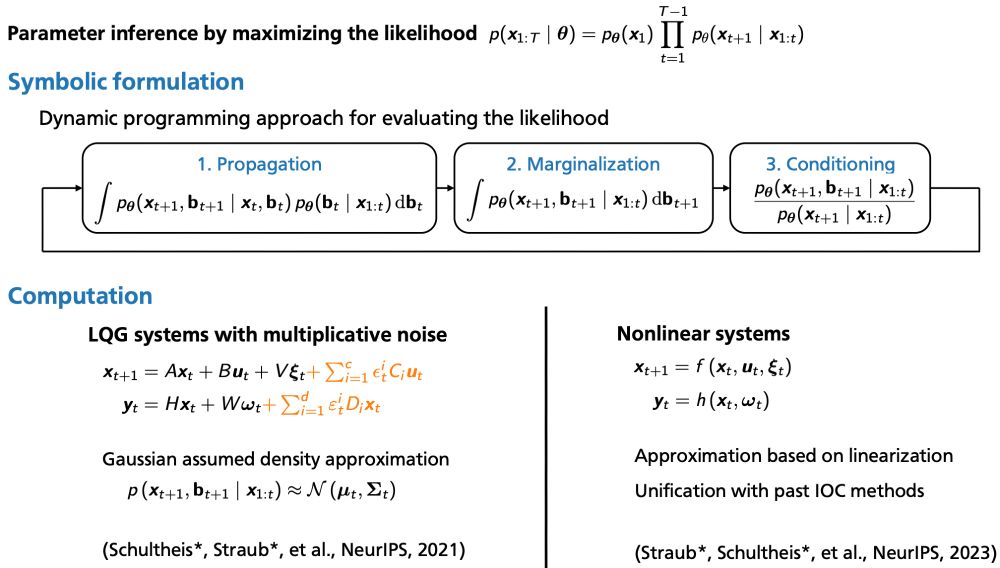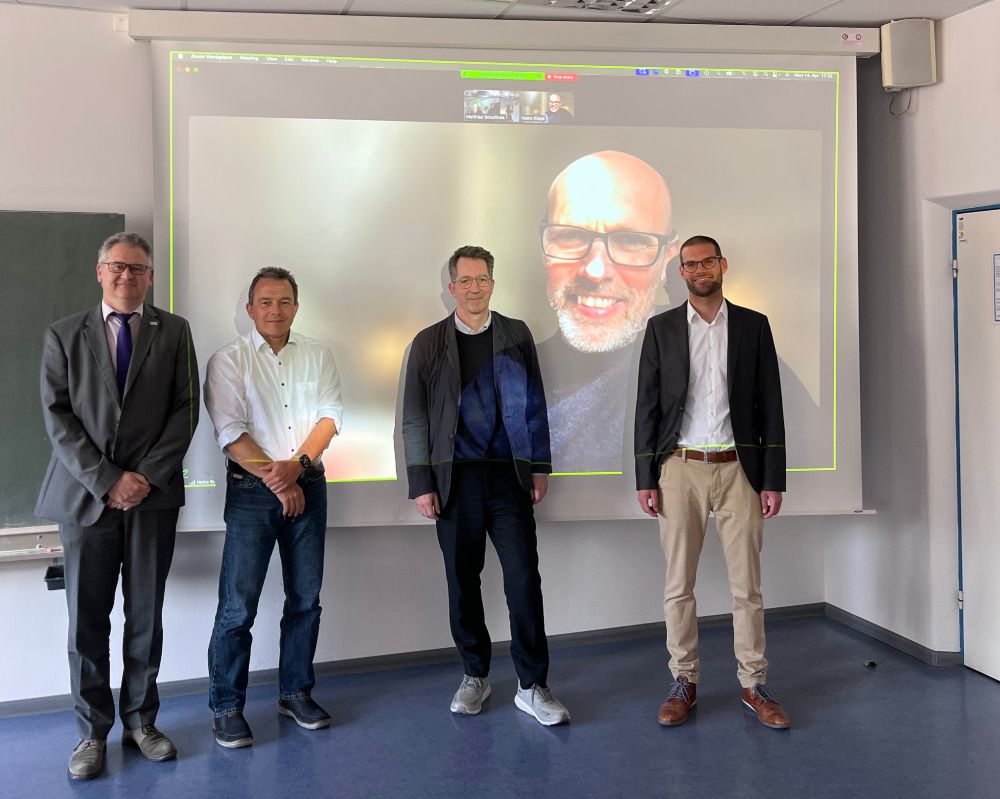Constantin Rothkopf
@c-rothkopf.bsky.social
220 followers
130 following
39 posts
Computational cognitive scientist. Perception and action are inseparably intertwined. Prof TUDarmstadt, Director Centre For Cognitive Science https://www.cogsci.tu-darmstadt.de/, Member Hessian.AI https://hessian.ai/ & ELLIS
https://www.pip.tu-darmstadt.de
Posts
Media
Videos
Starter Packs
Reposted by Constantin Rothkopf
Reposted by Constantin Rothkopf
Reposted by Constantin Rothkopf
Reposted by Constantin Rothkopf
Tobias Niehues
@tobnie.bsky.social
· Apr 23
Reposted by Constantin Rothkopf
